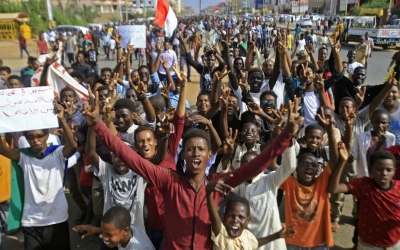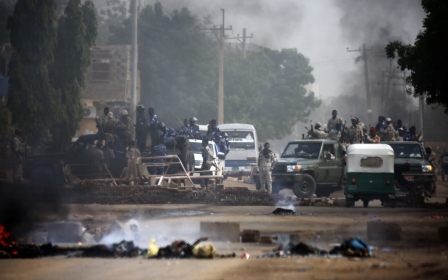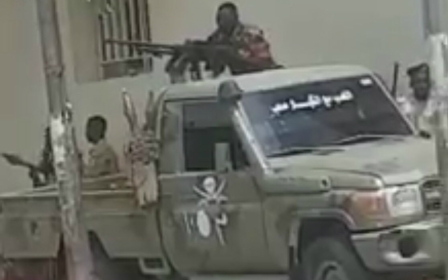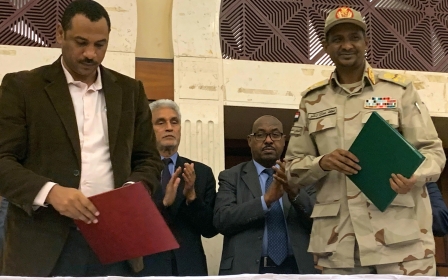Sudan's opposition hails 'first step' towards agreement with military council
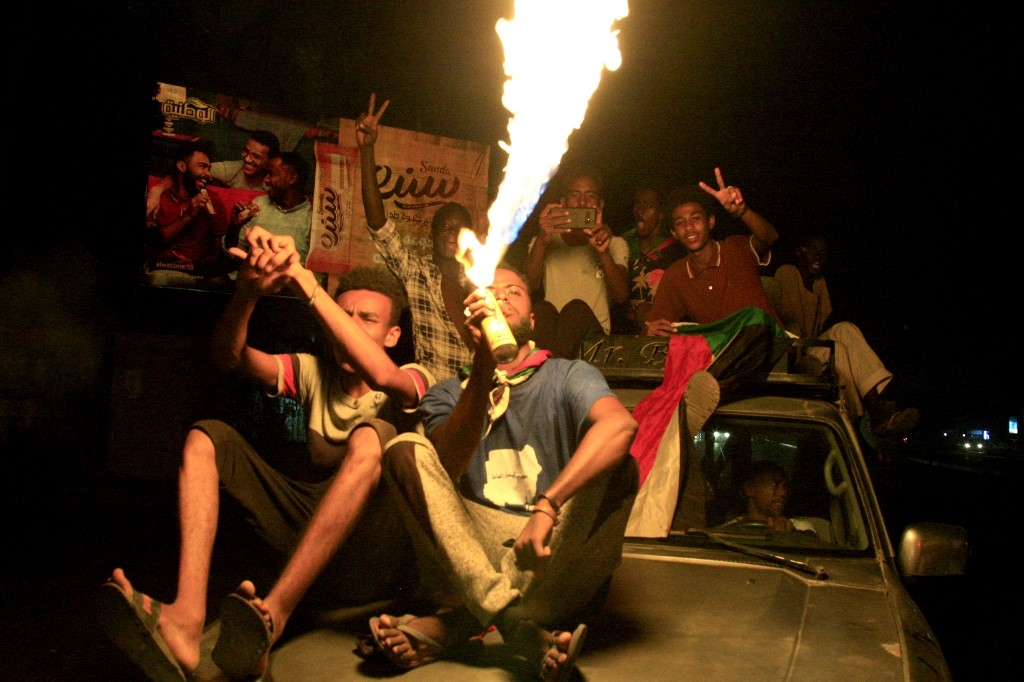
Sudan's ruling military council and opposition leaders have reached an agreement on the country's new constitutional declaration, a mediator from the African Union (AU) said at a news conference early on Saturday.
Without providing details about the content of the declaration, AU mediator Mohamed Hassan Lebatt told reporters that the two parties had come to a full accord.
New MEE newsletter: Jerusalem Dispatch
Sign up to get the latest insights and analysis on Israel-Palestine, alongside Turkey Unpacked and other MEE newsletters
Under the declaration, Sudan's intelligence service will report to the cabinet and the sovereign council, the body that will rule the country in a proposed transitional period. The Rapid Support Forces (RSF), its most powerful paramilitary group, will report to the general commander of the armed forces, Reuters reported after seeing a draft of the document.
The main opposition coalition, the Forces of Freedom and Change (FFC), said the agreement was a "first step with more to follow" and pledged to deliver "freedom, peace and justice" in Sudan.
It said both sides had agreed to sign the agreement on Sunday.
In Khartoum, crowds gathered on Nile Street to celebrate as news of the agreement being reached spread. Some chanted "We're victorious!", Reuters reported.
But Magdi el-Gizouli, an academic at the Rift Valley Institute, told the news agency that it was too early to speculate what the outcome of the agreement would be.
"Definitely there is pressure from all sides to sign something, the mediators are pushing, public opinion in Sudan wants an arrangement ... But how they will turn that into practice is a completely different question," he said.
Gizouli also questioned whether bringing the RSF under the formal control of the army would make much difference because, she said, it had already been under formal military control.
The document, which outlines the powers and the relationships between the branches of the transitional government, comes after weeks of protracted negotiations brokered by the African Union and neighbouring Ethiopia amid sporadic bouts of violence in the capital Khartoum and other cities.
In July, the two sides signed an agreement that secured a three-year transition period and established a joint sovereign council with a rotating leadership. Still, talks over the constitutional declaration were called into question by violence earlier this week.
The RSF has been a contentious issue, as the force has played a leading role in a deadly crackdown against protesters continuing to demonstrate against the military council.
The council took over in April after the army overthrew Sudan's long-time president Omar al-Bashir.
RSF members detained over killings
On Friday, Sudan's military council spokesman said that nine members of the RSF had been dismissed and detained in connection with recent violence in the cities of Omdurman and El-Obeid, where six people, including four schoolchildren, were killed on Monday.
Hundreds of thousands of protesters took to the streets across the country on Thursday in response to the killings, and opposition medics said four protesters were killed and many wounded by gunfire in Omdurman.
The opposition has demanded that members of the new joint sovereign council not be granted blanket immunity from prosecution for past crimes.
On Thursday, opposition leaders said they had agreed for members to be granted "procedural immunity" - meaning they could be tried only with the approval of two-thirds of the legislative council, Reuters reported at the time.
The two parties also agreed on another key point during those negotiations, reaffirming that the parties included in the opposition would make up 67 percent of the yet-to-be-established legislative council.
The remainder of the seats would be taken up by other opposition and political groups.
Sudan's ruling military council has yet to confirm the details of the agreements.
Middle East Eye delivers independent and unrivalled coverage and analysis of the Middle East, North Africa and beyond. To learn more about republishing this content and the associated fees, please fill out this form. More about MEE can be found here.


